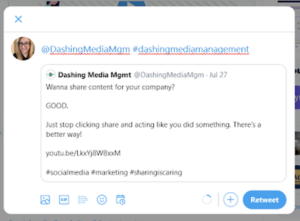Hi everyone! I’m back! If you don’t know me, I’m Cameron (Tim’s middle son) and I have been featured several times on my Dad’s blog, podcast, and social media. Recently, I have been featured heavily on his social feeds and blog because I am doing what no one wants to be doing right now: searching for a job. I recently graduated from the University of Michigan into a horrible economy and job market. Just my luck! While this job search so far has been frustrating and agonizing (and is still ongoing), I have learned a few lessons that I hope might be helpful for anyone in the same position as me.
1. It takes a village
In order to find a job, most times you will need some help. I have needed some form of help to get almost every job that I have ever had. During this period, I have reached out and asked for help from more people than I ever have before. Although I really don’t like to ask for help, I have received so many encouraging and positive messages from people that have been trying to aid my job search in whatever way that they can. Thanks to my Dad, I have a plethora of HR pros to help me through this, but I have received help from so many of my friends, adults in my community, and random people who saw a post on social media and reached out to me. When I do find a job, I will have a village of people to thank when I’m on the other side.
2. When you’re stuck, try something new
One of the first things that I started at the beginning of quarantine was learning how to podcast. I have been a huge fan of podcasts for years and I have always wanted to be a part of the production of one. My Dad asked me to help out with his podcast and now, I am a producer and editor of the HR Famous podcast. When I started, I had very minimal knowledge of audio editing and the production/distribution of podcasts, but I have been able to learn more and add a new skill to my resume. Not only has podcasting helped me feel productive during my job search, but it may potentially open up a new door for me in my job search.
3. It is a full-time job to get a full-time job
I think anyone who has job searched before may already know this, but as a recent college grad, I had no idea how much time it would take to get a real job. I thought I would be able to spend a few hours a week applying to 5-10 jobs and that would be enough. Oh, how I was SO wrong. After 6 months of being on the job search, I cannot even fathom the number of hours I have put into looking and applying for jobs, networking with people, and updating resumes, cover letters, and portfolios. Although it is extremely exhausting and at times debilitating, I am (kinda) grateful that I have had something to fill my quarantined days.
4. Don’t be ashamed
I would say I am a pretty outgoing person and I am not too afraid to talk to new people, but it is scary reaching out to people who have no idea who you are and asking for help. I was very reluctant at first to reach out to strangers on social media or through email and try to make a connection, but I am so glad that I did. After doing this for several months, I am starting to see the beginning of the benefits of doing this. Some new opportunities are starting to open up and people have been reaching out to me about them. It is scary to put yourself out there in a vulnerable way to new people, but most likely they’re going to be nice and try to help.
All four of these lessons add up to one bigger lesson that is something I am still working on: you cannot tie your identity to the amount of rejection and failure you receive. It has been agonizing to see my friends start their jobs at incredible companies or get ready to head off to grad school, while I sit and wait for any company to email me for an interview request. However, I know that I did almost everything I could have done during college to aid me in this job search and the cards are just stacked against me right now. In the future, I will be grateful for all of this rejection because I will be better equipped to handle it then. It just feels pretty damn bad right now. But it will get better for me and for everyone.
Cameron Sackett is a recent Communications and Marketing graduate from the University of Michigan with internships in social media and marketing at MTV/Viacom, Quicken Loans, Ann Arbor Film Festival, and Skill Scout.
Michigan with internships in social media and marketing at MTV/Viacom, Quicken Loans, Ann Arbor Film Festival, and Skill Scout.






